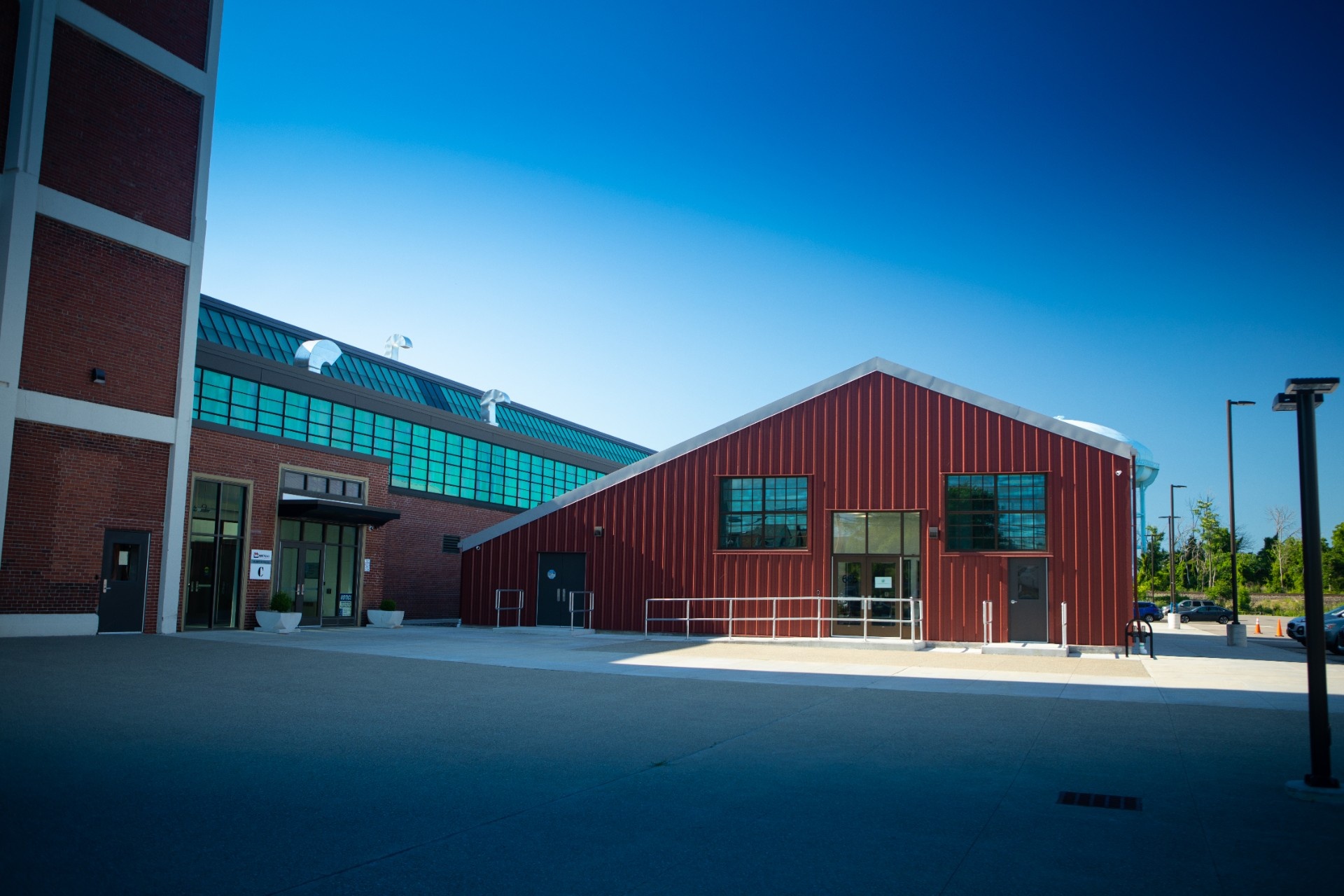The company is commercializing technology to treat biofilm infections associated with metallic orthopedic implants
University at Buffalo technology licensee Garwood Medical Devices LLC has moved its headquarters to Northland Avenue in Buffalo, where the company is preparing for pilot production of its BioPrax™ device.
The technology behind BioPrax™, a cathodic voltage-controlled electrical stimulation, is patented by UB and Syracuse University and exclusively licensed by Garwood Medical Devices.
BioPrax™ is being developed to treat biofilm infections on prosthetic knee implants during early intervention procedures and used alongside the current standard of care. The device, which is currently undergoing pre-clinical development, provides a low-voltage electrical signal to prosthetics, creating an electrochemical reaction that kills bacteria associated with biofilms.
Pilot manufacturing is an important step toward bringing medical devices to market, demonstrating that a product can be made consistently in large quantities. Garwood Medical Devices anticipates producing pilot devices for use in clinical trials, says Wayne Bacon, president and CEO.
“When biofilm infections occur, it can be devastating to the patient and family. Over a five-year period, many of these patients do not survive,” Bacon says. “The cost to society is also very high, with the average course of treatment through traditional methods often costing families, the health care system and society hundreds of thousands of dollars. It is difficult to overstate the devastation that these infections cause.”
“It is extremely fulfilling to see this technology evolve from an idea we had 10 years ago to where we are today, with an exciting commercialization pathway for a product that could provide an effective solution to a very challenging clinical problem,” says UB biomedical engineering researcher Mark Ehrensberger, who co-invented the electrical stimulation method that BioPrax™ uses with UB faculty members Anthony Campagnari and Nicole Luke-Marshall; former UB researcher Esther Takeuchi; and former Syracuse University researcher Jeremy Gilbert.
Ehrensberger says the ultimate goal is to save lives and improve the quality of care for patients with infected orthopedic implants, potentially reducing the need for revision surgeries that can have long and painful recovery periods.
Partnerships with UB, others, help Garwood Medical Devices move forward
Work toward pilot production is one of several developments that Garwood Medical Devices has reported since moving to Northland Avenue last December — a location that will enable the company to easily meet, recruit and hire students from the Northland Workforce Training Center next door, Bacon says.
In June, Garwood Medical Devices announced that it had successfully raised $4 million in Series C funding, and that the company had signed a memorandum of understanding with the Swedish company Integrum AB, stating an intent to conduct joint research activities on the use of the technology behind BioPrax™ in relation to Integrum’s bone-anchored percutaneous prostheses system for amputees.
Over the years, Garwood Medical Devices has partnered with UB investigators on research and development, hired UB alumni and leveraged resources including UB’s Buffalo Institute for Genomics and Data Analytics (BIG), UB’s New York State Center of Excellence in Materials Informatics, the UB Center for Advanced Technology in Big Data and Health Sciences, and the UB Center for Computational Research. The company maintains a wet lab and office in UB’s New York State Center of Excellence in Bioinformatics and Life Sciences, and is part of the START-UP NY program through UB.
“Garwood Medical Devices has partnered with UB on a variety of high-impact projects,” say Christina Orsi, UB associate vice president for economic development. “The company’s growth provides a great example of how entrepreneurs and businesses can tap into UB’s resources, including the knowledge of our faculty, to advance the commercialization of products with the potential to improve many people’s lives.”
“Our partnership with Garwood Medical Devices capitalizes on the strengths of both teams to optimize the effectiveness of the treatment and accelerate commercialization,” says Ehrensberger, who continues to collaborate with Garwood Medical Devices on research and serves on the company’s advisory board.
Inventors of the electrical stimulation method that BioPrax™ relies on include:
- Mark Ehrensberger, PhD, associate professor in UB’s Department of Biomedical Engineering, a joint program of the UB School of Engineering and Applied Sciences and Jacobs School of Medicine and Biomedical Sciences at UB, and director of the Kenneth A. Krackow, MD, Orthopaedic Research Laboratory in the Department of Orthopaedics in the Jacobs School;
- Anthony Campagnari, PhD, SUNY Distinguished Professor, professor of microbiology and immunology and senior associate dean for research and graduate education in the Jacobs School;
- Nicole Luke-Marshall, PhD, research assistant professor of microbiology and immunology;
- Esther Takeuchi, PhD, a former UB engineering and chemistry researcher who is now at Stony Brook University; and
- Jeremy Gilbert, PhD, a former Syracuse University biomaterials researcher who is now at Clemson University.












